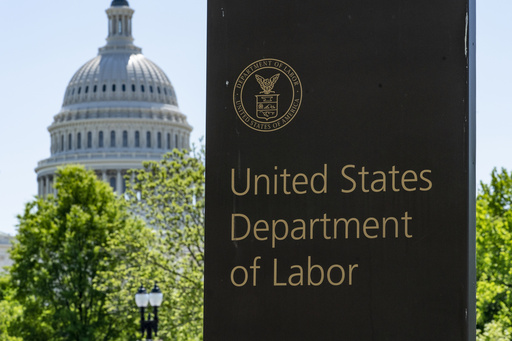
A federal judge in Texas has intervened by cancelling a new rule from the Biden administration aimed at enlarging overtime pay eligibility for millions of salaried workers in the United States.
In his ruling on Friday, U.S. District Judge Sean Jordan supported the arguments made by the state of Texas along with several business organizations, asserting that the Labor Department overstepped its authority when it approved this rule earlier in the year, which was intended to greatly enhance federal overtime access for salaried employees.
According to existing federal law, almost all hourly workers are entitled to overtime pay after working over 40 hours in a week. However, many salaried employees are exempt from this requirement unless their earnings fall below a specific threshold.
The Labour Department’s now-defeated regulation would have resulted in the most significant increase to this threshold seen in many years. Starting July 1, employers were to provide overtime compensation to salaried workers earning less than $43,888 annually in specific roles, including executive, administrative, and professional positions. Furthermore, this amount was anticipated to rise to $58,656 the following year.
The Labor Department had estimated that about 4 million lower-income salaried workers would qualify for overtime protections in the initial year of this new rule. Additionally, around 292,900 workers who are more highly compensated were also expected to gain overtime rights due to separate increases in thresholds.
With the judge’s ruling, the previous threshold of $35,568, which was established in 2019 during the Trump administration, is set to become effective once again.
A representative from the Labor Department has not provided any immediate comments following the ruling on Friday.
When this rule was finalized in April, Acting Secretary of Labor Julie Su asserted that the administration was committed to improving the situation for workers, emphasizing that it was “unacceptable” for lower-paid salaried employees to receive the same pay as their hourly counterparts for similar work without additional compensation.
As this new regulation was rolled out, legal disputes emerged swiftly. Various trade organizations contended that this change could negatively impact businesses and result in expenses that might force employers to reduce job positions or limit working hours.
This is not the first instance in which an expansion of overtime pay has faced judicial rejection. In 2016, an effort initiated during the Obama administration to similarly broaden overtime eligibility was ultimately overturned in court following resistance from several business executives and Republican officials.
The ongoing discussions surrounding overtime pay regulations continue to highlight the complexities and challenges inherent in balancing worker rights with business operations.
